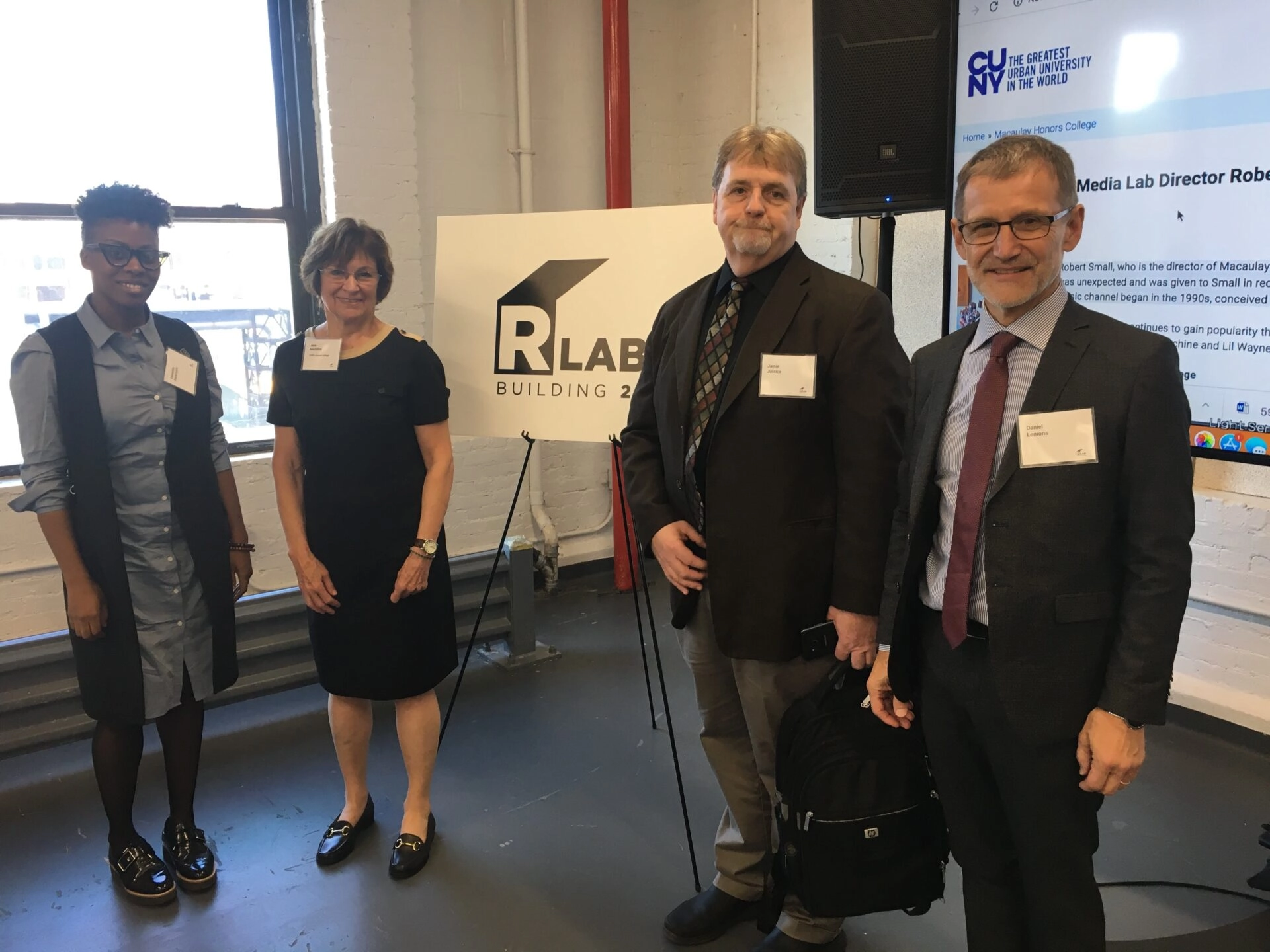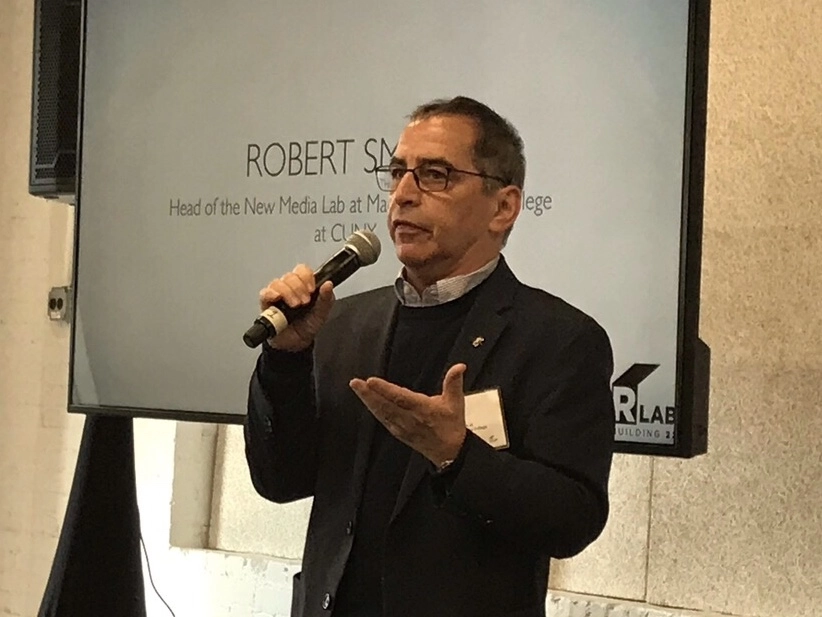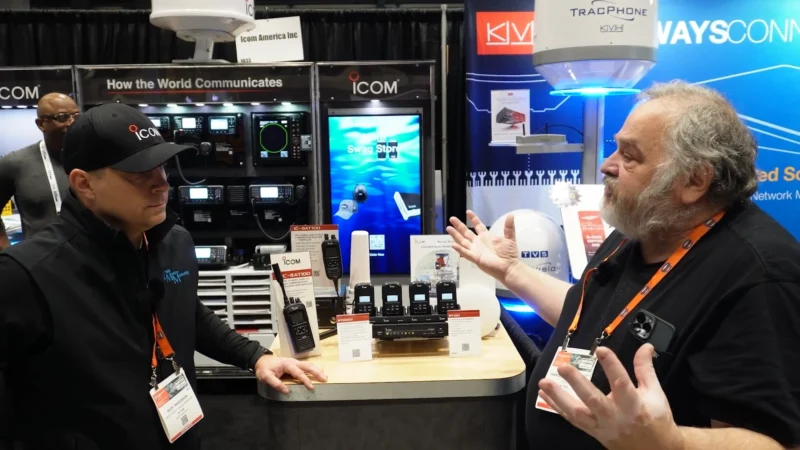How Brooklyn Just Became the Virtual Reality Capital of the United States
On Oct. 24, 2018, the New York City Economic Development Corporation (NYCEDC), the Mayor’s Office of Media and Entertainment (MoME) and Brooklyn Navy Yard came together to officially launch RLab. The lab is a 16,500 square-foot virtual and augmented reality research, education and entrepreneurship center in Brooklyn that will bring businesses, students and AR/VR professionals together.
RLab is the first city-funded VR/AR lab in the country and many organizations have partnered to help bring the project to life. Startups and small businesses in the AR/VR industry will be able to co-work, conduct research and bring products to the market in the shared space.
The Tandon School of Engineering at New York University was selected as the administering institution and will work with several other schools to operate the lab.
“This is the result of a report to increase New York City jobs by 100,000 and technological jobs by 30,000,” stated Jane MacKillop, Dean, School of Continuing and Professional Studies, Lehman College at City University of New York.

MacKillop said Lehman and NYU were both contacted by the Economic Development Corporation and were excited about what the idea could mean for the city.
“The goal is to provide a platform to train and foster VR/AR technology businesses and professionals, while also cementing NYC’s place as the leader in this industry as we have done with everything from fashion to 3D printing,” New York State Assemblyman (D-North Brooklyn), Joseph R. Lentol said.
The combination of businesses, students, workers and educators who stand to benefit from RLab is what excites those that are involved in the space.
“From my perspective, the project is designed to bring together all essential forces to make the RLab an AR/VR/MR destination for business. You will have startups and students interacting with financiers and businesses growing and sharing under one roof,” Robert Small, Director, Macaulay New Media Lab, Macaulay Honors College said. “The goal is a creative force within the scientific fields of AR/VR/MR to build businesses.”
Small stated that his involvement in the project began from a conversation with Justin Hendrix, Executive Director, NYC Media Lab.

“He and I were discussing ways to create opportunities for my students from Macaulay Honors College/CUNY in media and tech companies. NYU Tandon and he were responsible for including Macaulay in the proposal,” he explained.
Small expressed that both he and the school are grateful to Hendrix for the opportunity.
With a business accelerator program being a staple feature of RLab, this project has incredible potential to become a model for other cities. Small went as far as to call it a perfect storm for growth.
“Once a concept like this gets off the ground there is no way to stop it from growing. You have intense demand from the business community for AR/VR development,” Small said. “The RLab has the geographic proximity to all New York City has to offer both creatively and economically.”
The sentiment is shared by seemingly everyone involved in the project.
“Accelerators are a great model to promote businesses and create jobs. We have seen success in with accelerators in other technological areas, like at NYU Tandon’s Future Labs,” stated Assemblyman Lentol. “The model is proven.”
When asked what audience this project was targeting, Small responded, “I can only say for myself, as the Director of the Macaulay Honors College New Media Lab, that the RLab will be a source of great opportunity for the students setting out to work in the sciences and in business here in New York.”
MacKillop said that in her opinion this project would target not only students and entrepreneurs, but also the community at large.
“This is where New York is charmed, they know it will help the city,” she said.
Assemblyman Lentol explained that RLab’s accelerator program will be a boon to the business community but also a place for people outside of the world of AR/VR to learn.
“The target audience is definitely early-stage companies, technology students and anyone else interested in the VR/AR field. The RLab will be a gathering place for the industry so anyone can come and learn,” he stated.
AR and VR technology has been around for years, but its application is still being refined and discovered by several industries, including retail, hospitality, entertainment and a myriad others. An additional benefit to RLab in the eyes of MacKillop is that it may serve as a breeding ground for innovation.
“We don’t know where VR/AR is going; it’s like the early days of internet. We think we know where it’s going but it could go in any direction,” she said.
MacKillop expressed the “brilliance” in this will be the inclusion of other businesses and the creation of a harmonious center, calling it, “truly amazing.”
With the backing of both public and private institutions, RLab is truly the first of its kind in the AR/VR industry and could be a defining moment for the industry.






